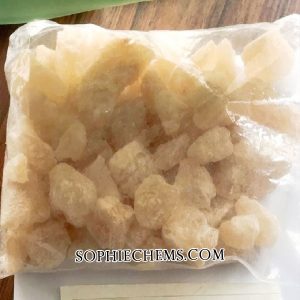Understanding Research Chemicals: A Comprehensive Guide
what-are-research-chemicals ? Research chemicals, often abbreviated as RCs, are synthetic substances that mimic the effects of existing compounds. They are primarily utilized by scientists and researchers in various fields, including pharmaceuticals, agriculture, and neuroscience. However, the term “research chemicals” encompasses a broad spectrum of substances that haven’t yet been thoroughly studied or approved for human consumption.Research Chemicals for Sale
What Constitutes Research Chemicals? what-are-research-chemicals
These compounds can range from newly created substances to analogs of existing drugs. They are typically developed to explore the structure-activity relationships of molecules, aiding in the understanding of biochemical interactions. Research chemicals can include stimulants, psychedelics, dissociatives, and more.Buy Research chemicals online usa
Uses in Scientific Research |what-are-research-chemicals
Research chemicals play a pivotal role in multiple scientific endeavors. In drug development, they assist in understanding potential therapeutic effects and possible side effects. Moreover, agricultural research employs these chemicals to enhance crop yield and study plant behavior under different conditions.what-are-research-chemicals
Safety and Legal Considerations
Due to the limited knowledge surrounding their effects, research chemicals pose inherent risks. Their legality varies across regions, with many jurisdictions strictly regulating their sale and usage. Researchers and scientists emphasize the importance of handling these substances with extreme caution, following established safety protocols and ethical guidelines.what-are-research-chemicals.buy 2-FDCK buy online
Types of Research Chemicals

Certainly! Research chemicals encompass a wide array of compounds, each serving specific purposes in scientific inquiry. Some common types include:
- Stimulants: These chemicals enhance alertness and cognitive function. Substances like amphetamines and cathinones fall into this category, often studied for their effects on the nervous system.
- Psychedelics: Known for altering perception and cognition, psychedelics include compounds like LSD, psilocybin (found in magic mushrooms), and DMT. Researchers explore their potential in treating mental health conditions. Buy 5f-mdmb-2201
- Dissociatives: These substances induce feelings of detachment from reality. Compounds such as ketamine and PCP fall into this category and are studied for their potential in anesthesia and mental health treatments.
- Cannabinoids: Chemicals that mimic the effects of compounds found in cannabis plants. Synthetic cannabinoids are investigated for their medical properties and potential therapeutic uses.
- Empathogens: These substances promote feelings of empathy and connectedness. MDMA, also known as ecstasy, is a prominent empathogen studied for its effects on social behavior and PTSD treatment.
Each type of research chemical has its unique properties, and scientists delve into understanding their mechanisms of action and potential applications in various fields of study.5f mdmb 2201 for sale online
FAQs
Q: Are research chemicals legal?
A: Legality varies by country and compound. It’s crucial to research and adhere to local laws and regulations.
Q: Can research chemicals be harmful?
A: Yes, these substances can pose significant health risks due to their unknown effects and lack of extensive research.Research Chemicals in Medicine and Pharmaceuticals,” “Legal Regulations for Research Chemicals,” “Impact of Research Chemicals on Environment”
Q: How are research chemicals obtained?
A: They’re typically sourced through specialized laboratories or chemical suppliers catering to scientific research.
Keywords for “What Are Research Chemicals?”
- Primary Keyword: “What Are Research Chemicals?”
- Secondary Keywords: “Types of Research Chemicals,” “Ethical Use of Research Chemicals”
- Long-Tail Keywords: “Research Chemicals in Medicine and Pharmaceuticals,” “Legal Regulations for Research Chemicals,” “Impact of Research Chemicals on Environment”
- LSI Terms: “Lab Procedures for Research Chemicals,” “Uses of Research Chemicals in Agriculture,” “Safety Measures for Handling Research Chemicals”
- Related Keywords: “Synthetic Chemical Compounds,” “Experimental Substances,” “Non-Natural Chemical Compounds”
- Quizzes: “Test Your Knowledge About Research Chemicals!”
- Guides: “Comprehensive Guide to Understanding Research Chemicals”
- Interviews: “Expert Insights: Conversations on Research Chemicals”
- Photo Essays: “Visual Journey into the World of Research Chemicals”
- Case Studies: “Real-Life Applications: Case Studies on Research Chemicals”
- PubMed – Research Chemicals in Medicine
- Provides detailed studies on the medical applications of research chemicals.
- ScienceDirect – Ethical Use of Research Chemicals
- Offers insights into responsible usage and ethical considerations.
- Nature – Environmental Impact of Research Chemicals
- Discusses the ecological implications of research chemicals.
- FDA – Regulations on Research Chemicals
- Official information on legal frameworks and regulations.
- World Health Organization – Safety Measures for Research Chemicals
- Guidelines on handling research chemicals safely.









 by Towfiqu barbhuiya (https://unsplash.com/@towfiqu999999)
by Towfiqu barbhuiya (https://unsplash.com/@towfiqu999999) by Pharmacy Images (https://unsplash.com/@pharmapix)
by Pharmacy Images (https://unsplash.com/@pharmapix) by Pretty Drugthings (https://unsplash.com/@prettydrugthings)
by Pretty Drugthings (https://unsplash.com/@prettydrugthings)